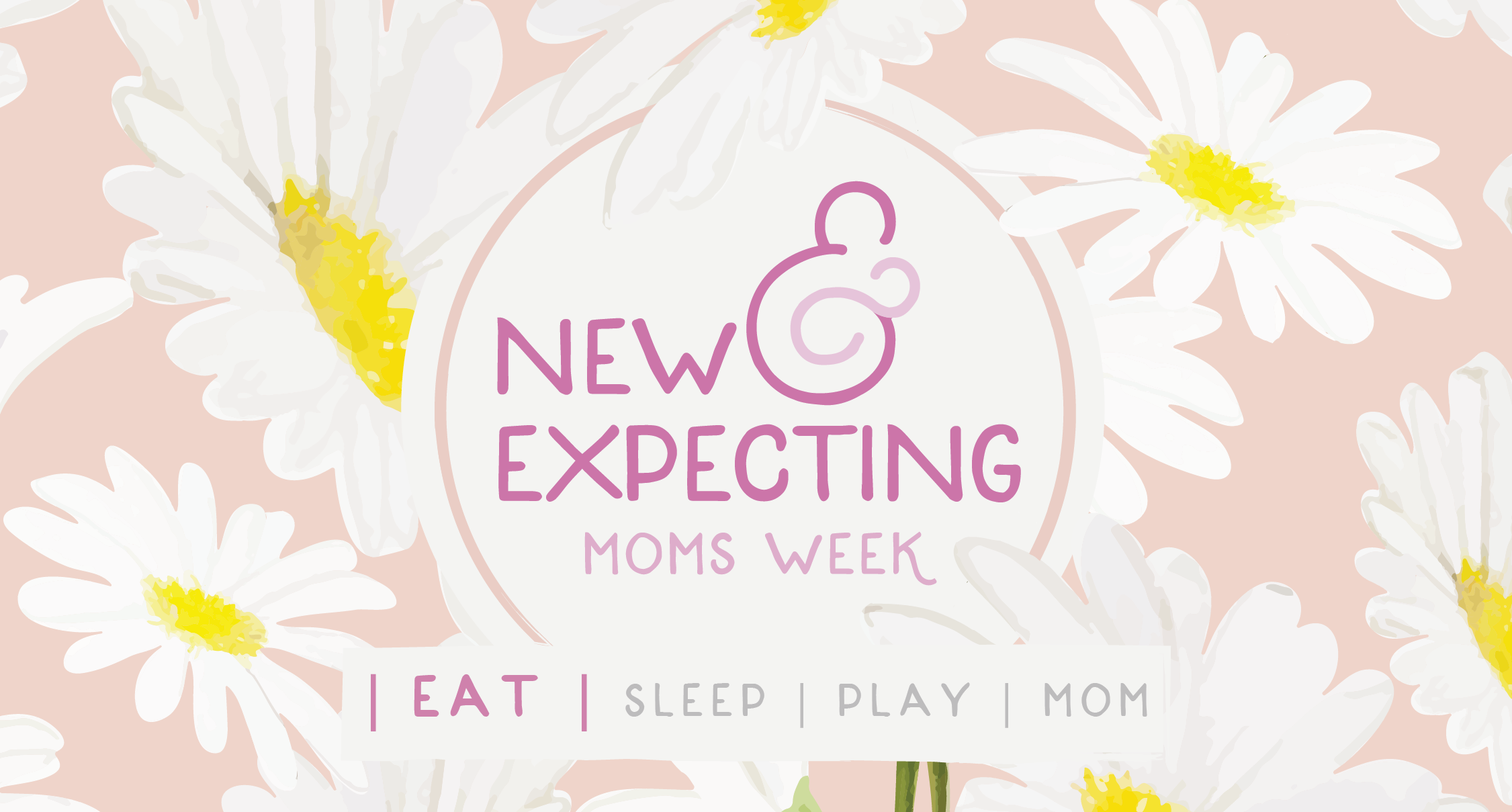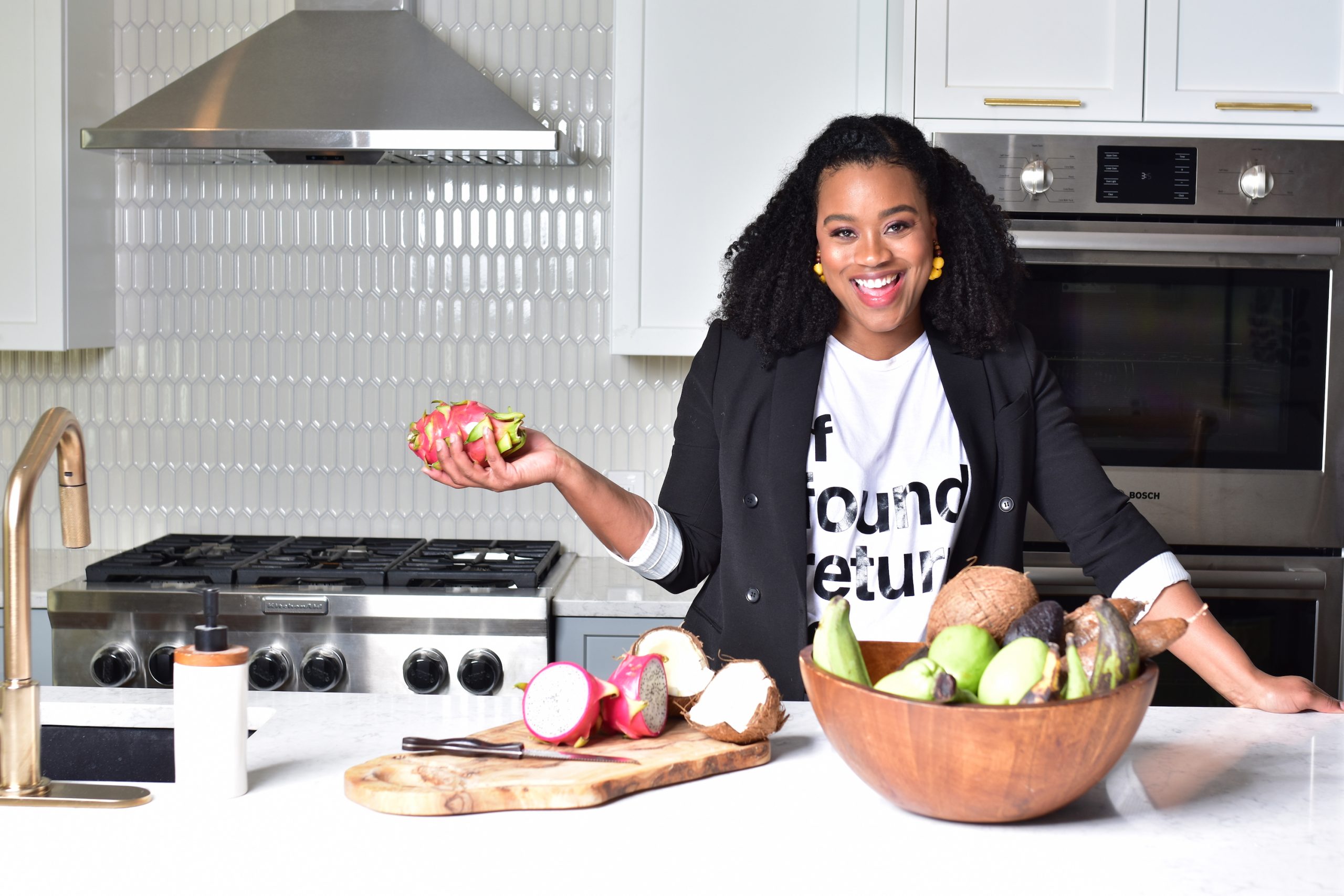
At City Mom Collective, we are dedicating a week to empowering and supporting new and expecting moms. This week we are focused on four specific topics, EAT, SLEEP, PLAY, and MATERNAL HEALTH.
We are kicking the week off with a conversation and interview with Tracy of Little Cocoa Bean Company around the topic of EAT. Please watch the interview below for great baby feeding tips!
Tracy Skelly:: CEO & Founder of Little Cocoa Bean Company

Little Cocoa Bean Company was founded in 2019 when Tracy Skelly- mom, home chef, and food advocate, gave birth to her first child. She was unable to find baby foods with the culturally diverse flavors and nutrient content she sought for her daughter. This led to Tracy’s own experimentation with first foods for her daughter, creating recipes that included ‘heritage foods’- food that can connect to cultural beliefs, traditions, etc., such as collards, chayote, papaya, and tamarind.
Follow the Little Cocoa Bean Company on Instagram, Facebook, and Twitter.
Baby Feeding Tips | An Interview with Tracy Skelly, Little Cocoa Bean Compnay
Tell us about your business – what drives your work and how are you helping families?
In 2018, when I had my daughter, I was given five months of maternity leave. During that time, I enjoyed every single minute of being home and snuggling my baby, especially because I had been working in corporate America where I was working 60 plus hours each and every week.
Feeding is such an important part of my family and culture. My family is from Central America, by way of the Caribbean, and food is so important in many families in many cultures. My family, as many families approach food, it becomes this community affair, it becomes this expression of love. The people, particularly the women in our family, they’re in the kitchen, and they are arguing over how many pinches of that, or how do you slice that because it really is all about feeding being a love language and a way to communicate that love to your loved ones. And so I made everything fresh. Everything was locally sourced when it could be locally sourced. But one of the most important elements of what I was feeding my child was that I was really focused on ensuring that she was connected to my culture and my heritage by consuming foods that are staples where I come from. Those include foods like chayote, which is a squash and it’s very much a first food. Cassava is a root vegetable. There are just so many foods that are found in so many of our dishes. When I was preparing to go back to work and trying to find something that could be store-bought or online bought equivalent to what I was feeding my child at home, I couldn’t find anything. I could find fresh foods I could purchase. But most of them didn’t have foods that I recognized or I could call out as being like, my baby’s gonna get her share of papaya or cassava today. I knew so much about health during that period and how important nutrition was during that period that I wanted something that was absolutely fresh. I didn’t want anything that was shelf-stable. And so I ended up continuing to make my food by hand which was really a struggle once I went back to work. Once I looked around and started really paying attention to how multicultural our society has become, we are such a melting pot in the US, and yet the options that are out there right now are specific to one particular culture. I realized that there must be more moms out there struggling to find the same foods and the same options that I was struggling to find. And that’s how this business was born, it really is about offering something that wasn’t available before. And also about ensuring that, especially, in the black and Latino community, we get sick from and die from diet-related diseases more often than our white counterparts. For me focusing on nutrition during those first years of life, we’re just starting to establish healthy habits and eating habits. That is the point at which you can influence not only the makeup of what your child becomes physically but also start to begin to change parents’ eating habits as well.
Food is emotional and cultural, how can we nourish our kids in ways the build lifelong skills for eating from childhood and beyond?
I think one of the things that we can do is to be really intentional about talking about the purpose of food. If everything has a purpose, then we should believe and do believe that our food has a purpose as well. And so everything that our kids consume, like, for my toddler, when she eats things, I say, “Wow, that cure is going to be so great for making your eyes strong.” Or I might say, “Oh, we’re going to have pumpkin tonight, pumpkin came from Mexico, and it came from the Mexican people.” Then she asks, “What’s Mexico? “Who are Mexican people?” Then we can start to read a book that night, that features a character from Mexico, or takes place in Mexico, because to me, every food that our of our children consume, should serve a purpose, whether it’s learning about how it helps the body or learning about the culture and the people that those foods come from. We’ll develop healthier children and also global children who understand that they are important, but small parts of this bigger, larger world.
You and the Little Cocoa Bean Co team talk a lot about the importance of the first 1,000 days being extremely important for a baby’s health? Can you tell us a bit more about this?
If you haven’t heard of the first 1000 days, I would encourage you to go to https://thousanddays.org/ for a wealth of information about this particular topic. Essentially, scientists and neurologists have studied the brain and have determined that during the first 1000 days of life, so truly, not from when your child is born, the clock doesn’t start then but from conception until their first 1000 days, which is just under three years. A child’s brain will grow more during that period than it will at any other point in their life. All of these different social, emotional, and reasoning skills are developing on a massive trajectory, and then it sort of tapers off and the growth slows from there. This particular period of life is so central in terms of brain growth and development. And the food is what fuels that brain growth and development during that period of time.
What are some of your favorite tips or advice around feeding babies up to 12 months?
The most important advice I have for anybody who’s feeding a baby under 12 months, is to have as much fun as possible during this period. Unless your baby has allergies, try to expose them to as many foods as possible during this period, before they transition beyond the 12-month period. I say that because kids will naturally get much pickier over time. Toddlers are wild, wild creatures, young children probably around your age are kind of stuck in their ways. I believe that kids who start with a strong eating foundation will eventually grow their way out of those things. But they all get weird about food eventually, so while they are so open to trying new things, this is the time to expose them not only to a diverse set of foods for nutrition but also so that you can start to influence their palates so that they are more accepting of those foods in the future. You can also use it as evidence. M youngest is now in a stage where she’s weird about certain things. She likes food some days, she doesn’t like them, the others. So then I’ll pull up the pictures and say “What? You do like bok choy because look at your eating it right here in this picture.” She goes, “Oh, I like it!” It’s almost this reprogramming. It’s not that you don’t like it. Maybe you don’t like it today, but you’re the same kid who really seems to like it in this picture. So while we can influence them, there is sort of a period between 12 months, maybe even 15 months they’re willing to try almost anything you put in front of them.











